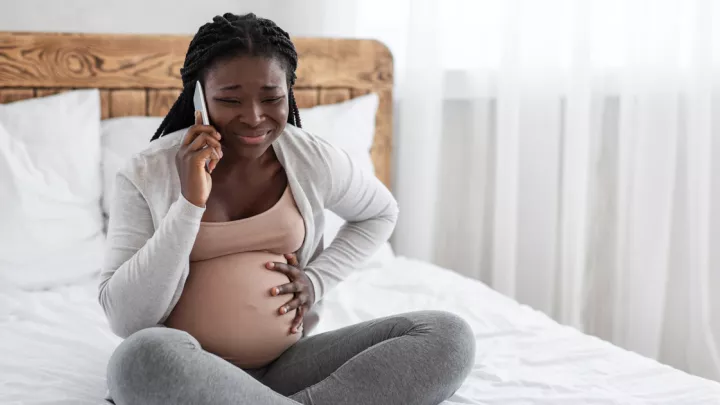Low iron in pregnancy: Spot the symptoms of anemia

During pregnancy, a woman needs twice the amount of iron that a nonpregnant woman needs.
You need iron to keep yourself healthy and to also support your developing baby. Iron helps your red blood cells deliver oxygen to the baby and to your tissues. Without high iron stores or consuming enough iron during pregnancy, you could develop iron deficiency anemia.
Risks associated with anemia during pregnancy include:
- Premature birth
- Low birth weight baby
- Infection
- Poor healing
- Prenatal and postpartum depression
Maternal anemia can also place the mother at an increased risk of death during and after childbirth. Severe anemia can lead to circulatory decompensation, increased cardiac output, an increased risk of hemorrhage and decreased ability to tolerate blood loss, leading to circulatory shock and death. Infants born of iron-deficient mothers are at high risk for having iron deficiency at birth.
Getting enough iron is important for both you and your baby.
Anemia symptoms in women
Symptoms of anemia include:
- Feeling lightheaded or dizzy
- Feeling weak or tired
- Trouble concentrating
- Constant feeling of being cold
- Shortness of breath
- Rapid heartbeat
- Trouble sleeping
- Headaches
If you experience any of these symptoms, call your doctor right away.
Who is considered anemic?
The World Health Organization (WHO) defines anemia in pregnant women as:
- First trimester: hemoglobin less than 11.0 g/dL
- Second trimester: hemoglobin less than 10.5 g/dL
- Third trimester: hemoglobin less than 11.0 g/dL
Pregnant women are routinely screened for anemia at their first prenatal visit and again between 24 and 28 weeks.
For nonpregnant women, hemoglobin lower than 12.0 g/dL is considered anemic according to the WHO.
Iron supplements during pregnancy
Without iron supplementation, iron deficiency anemia occurs in many pregnant women.
While nonpregnant women only need 18 mg of iron per day, pregnant women require 27 mg of iron daily. This amount is found in most prenatal vitamins. Please keep in mind that most gummy vitamins do not contain iron (as a safety precaution). If taking a gummy prenatal, you will also need an iron supplement. Placing your prenatal vitamin in a designated place such as near your toothbrush or setting an alarm on your phone may help to remind you to take this important vitamin every day.
If anemia is diagnosed, your doctor or midwife will prescribe extra iron for you to take daily. In severe cases, iron can be given intravenously. It takes several weeks, sometimes months to increase iron stores in your body so taking iron routinely as prescribed is important. Continue taking your prenatal vitamin and/or supplemental iron for six to eight weeks after delivery, to increase iron stores due to blood loss after delivery.
Iron-rich foods to eat during pregnancy
In addition to taking a prenatal vitamin with iron, eat a balanced diet that includes iron-rich foods. There are two types of iron in foods: heme and nonheme. Meat, poultry and fish contain heme iron, which is much more easily absorbed by the body than nonheme or plant-based iron.
Sources of meat-based (heme) iron:
- Beef
- Chicken
- Turkey
- Organ meats
- Oysters, clams and mussels
Sources of plant-based (nonheme) iron:
- Beans
- Spinach and other leafy greens
- Potato with skin
- Nuts and seeds
- Dried fruit
- Enriched breads and cereals
Vitamin C can help your body absorb iron. When eating plant (nonheme) sources of iron, include a good source of vitamin C, like fruit or fruit juice. When drinking juice, limit to one 8 ounce glass per day due to the high sugar content.
Sources of vitamin C:
- Oranges
- Grapefruit
- Kiwi
- Broccoli
- Peppers
- Strawberries
- Watermelon
Some foods decrease the body's absorption of iron. Avoid eating high-calcium foods at the same time as iron-rich foods. Calcium is an important nutrient during pregnancy, but calcium and iron compete in the body for absorption. For best results, space your high calcium foods from your high iron foods and prenatal vitamin. Some medications such as antacids and drinking excessive coffee or tea can also reduce the absorption of iron.
Call 800.922.0000 to schedule an appointment at the Olson Center for Women's Health.






